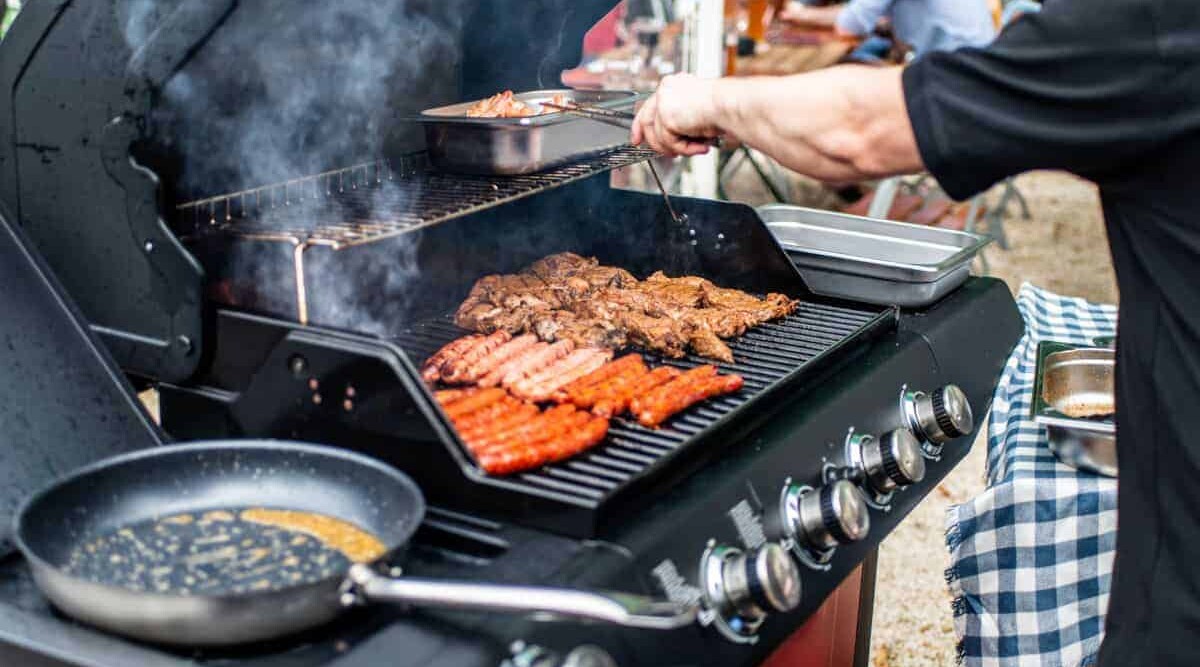
Wondering whether to use propane or natural gas?
There’s a big debate in the BBQ world surrounding propane versus natural gas grills, and it isn’t going away anytime soon.
It has rumbled on for many years with propane grills being the clear winner for some time, confirmed by the sale of propane grills historically being almost three to one.
Of late, though, the natural gas grill has risen in popularity, and more recently the numbers are closer to a sixty/forty split in favor of propane gas.
This rise in popularity has many asking, are natural gas connected grills the way forward for the grilling aficionado, and whether they give a different taste.
In this article, we will be exploring the difference between natural gas and propane gas grills.
We’ll be looking at what the benefits of each type are, along with the drawbacks, and once armed with this information, you will be able to make a firm decision as to what suits you and your BBQ style.
So, let’s jump straight into the debate …
Jump to:
Natural Gas Vs Propane — Which Should You Choose?
This is a tough one! With so many benefits to both, it’s hard to decide which is better overall. So, it comes down to personal preference for what suits your style of grilling.
If you like convenience and to spark and char with the least fuss, then a natural gas grill will suit you. With no tanks to worry about purchasing, running out or returning, you just light her up and cook ’til your heart’s content.
However, if you like to move around the garden and chase the sunshine, and love a ridiculously hot grill that will cook and sear a great steak, as well as cook everything else you chuck at it, then an anchor free propane gas grill will allow you to do all this and more.
For cost, natural gas is cheaper, especially if you are already mains supplied.
But on the other hand, propane gas grills are still generally cheaper than the natural gas ones. So, this depends on your circumstances.
Let’s dig a little deeper and justify my comments above…
What is a Natural Gas Grill?
Quite simply, it is a gas-powered grill burner that runs off a mains gas supply, similar to the setup of an oven and hob within the home.
Gas is a naturally occurring hydrocarbon mostly made up of methane with other gases such as carbon dioxide, hydrogen, and some helium.
It is found deep underground similar to oil and is produced when plants and animals die, leaving their bio-matter to decompose.
Exposed to high pressure from the pressure of rock layers and intense heat from the Earth’s core, this matter effectively releases the energy that these organisms gained from the sun in a gaseous state. This is trapped underground until released.
Often found with or near oil, the gas can be channeled and captured, then delivered via gas pipes to a processing plant where it’s stabilized and purified, before being piped directly to your home.
What is a Propane Gas Grill?
A propane grill differs slightly to a natural gas grill in that it uses liquefied gas stored in portable canisters or cylinders to fuel itself, rather than being connected to a gas line.
Propane gas is a refined and processed by-product of natural gas and petroleum refining.
Initially refined in gas form, it is then compressed into a transportable liquid and commonly used as a fuel for many things.
Most of our avid readers will recognize it as the liquid-gas of choice for most grill masters and their chosen gas grill. The reason being it has a very low boiling point, which means it vaporizes as soon as it is released from the gas bottle container.
Propane burns cleaner than coal or gasoline and has a low carbon emission rate similar to natural gas, so is often chosen over traditional fuels such as coal or diesel fuel.
Advantages of Grilling with Natural Gas over Propane Gas
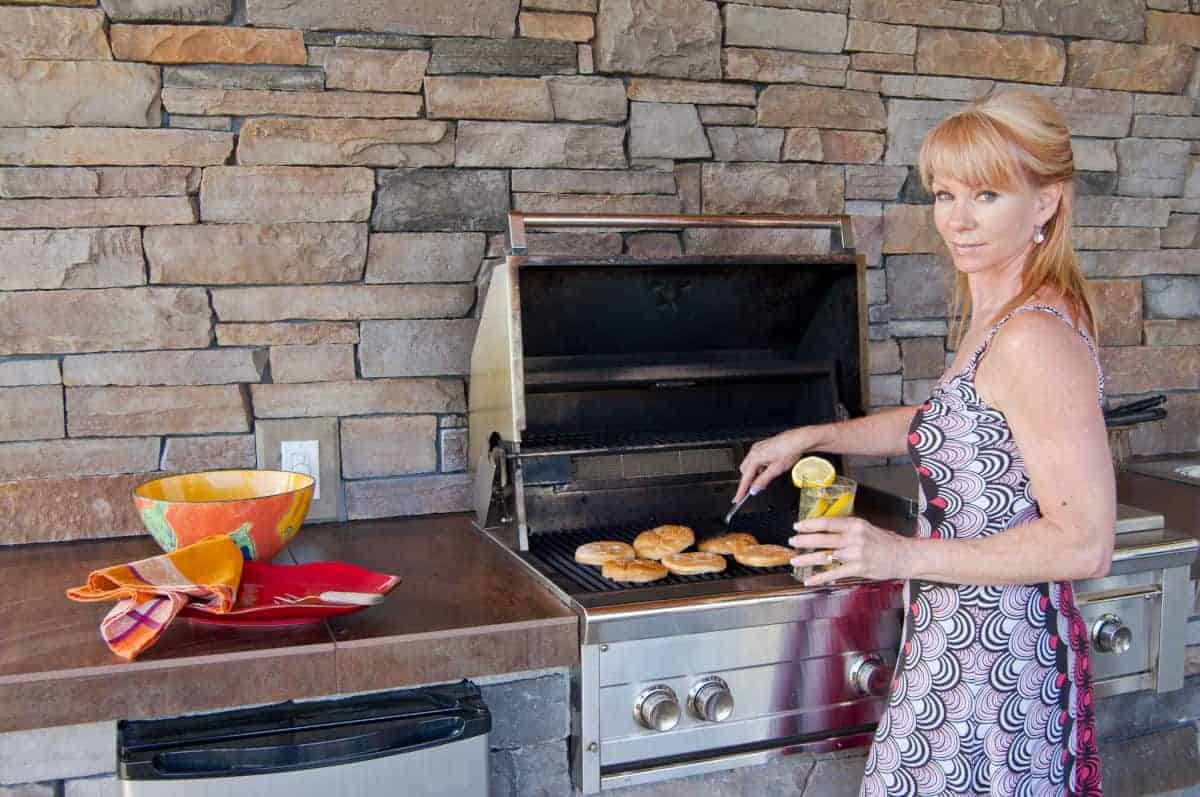
Environmentally Friendly
Natural gas is touted as the stepping stone for large economies, like America, to use while they reduce their reliance on oil and coal to find suitable renewable energy sources.
The reason for this is that natural gas burns cleaner and produces less than half of the carbon emissions that coal does per unit of energy used.
Many a grill fan have chosen to switch to a natural gas grill for this reason alone. That way, they can enjoy twice as many barbecues without worrying about an increased carbon footprint. It also has a marginally lower carbon output than propane.
Easy on Your Pocket
Natural gas is also cheaper than other fuels.
Compared to bottled propane specifically, it costs roughly a third per unit. This means if your property is already supplied with mains gas, it could be much cheaper to run your grill with natural gas and not propane.
Just bear in mind that if you aren’t connected, and the nearest main is some distance away, it could run to thousands for a connection to be installed.
Convenience
Natural gas delivered via mains supply is much more convenient than bottled propane for several reasons.
Firstly, you don’t have to go and fetch a propane bottle before you can grill. You also don’t have to connect and disconnect when you run out. And you don’t have to try and monitor the usage and guesstimate how much gas is left in the bottle.
Mains gas is an endless supply that is very unlikely ever to cut out or run out in the middle of a barbecue like bottled gas can.
And if this has happened to you before, you’ll know if you haven’t a spare to hand, it means heading out for another, or scrapping the barbecue completely, which is very inconvenient.
Dry Heat
It’s been said by natural gas converts that propane, being a gas derived from liquid form, has a ‘wet heat’ element to it that can change the texture and consistency of food. And not for the better.
With this in mind, they believe that natural gas is preferable for flame grilling, giving a better char and smoky flavor compared to propane gas grills.
Advantages of Grilling with Propane Over Natural Gas
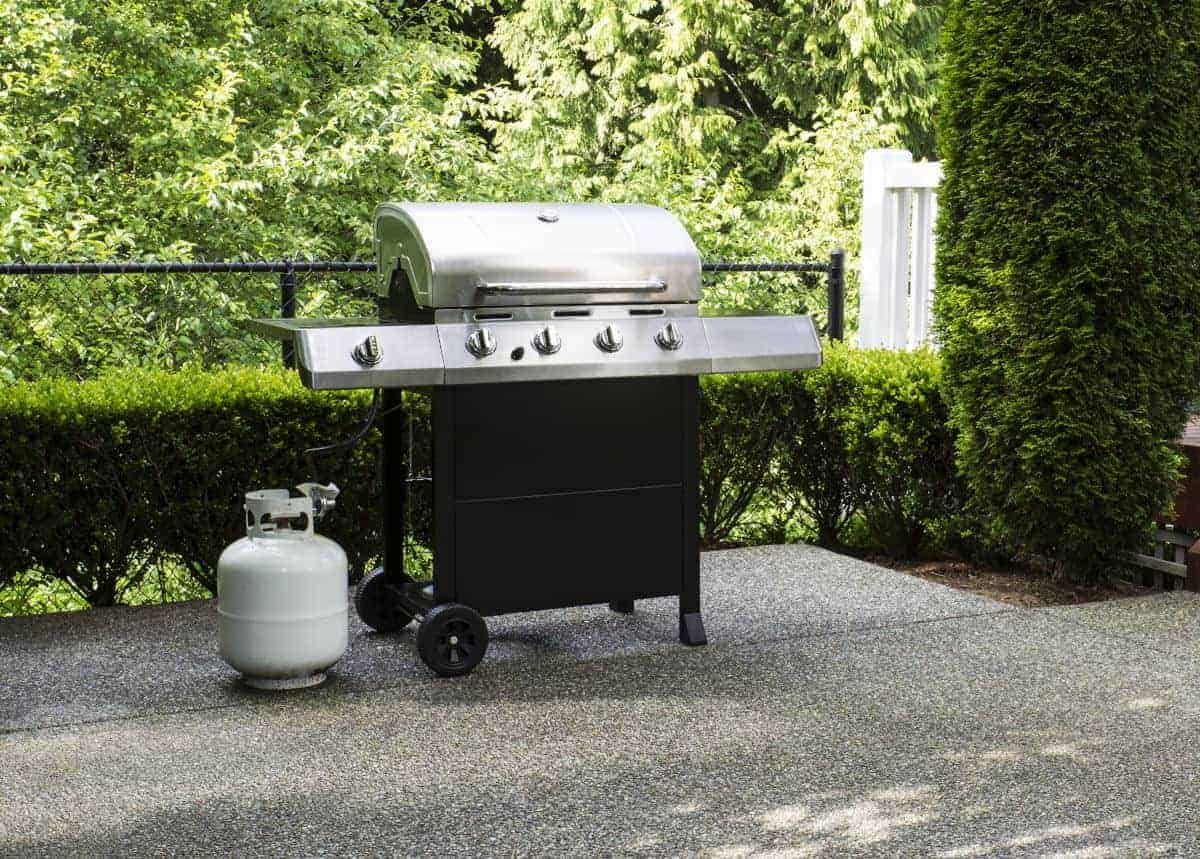
More Energy Efficient
But hang on, I hear you say, you just said natural gas was greener, and yes I did, but …
Natural gas produces less CO2 per unit, whereas propane gas produces more heat and energy per unit than natural gas. This means it will burn hotter, which leads many to say it has a more authentic grill taste and experience than natural gas.
A natural gas grill will have wider ports allowing the flow of gas to be faster as more needs to be burned per minute to create the same heat as propane.
Portability
Let’s face it, we all love to barbecue because it connects us to the outside world and gives us that feeling of cooking wild. This means that we are often found barbecuing in the garden, at the park or on the beach.
While charcoal is the usual go-to for portables, propane gas is increasingly popular for its ease of use and quick-fire cooking. Natural gas just doesn’t give you the portability of a propane tank.
A mains supply can’t be taken with you to the lodge or lake, meaning the lovely grill that cost you a lot is chained to your house, and you’ll see nothing of the big wide world. Propane gas gives you options for the setting in which you want to enjoy it.
No Upfront Costs to Install
Unlike natural gas, propane gas can be installed anywhere as it comes in bottles. This means that you do not need to pay for a connection to be installed or procured if you live too far from the mains supply.
So using propane gas might just save you thousands of dollars, and that’s plenty of meat and beers to be had!
Conclusion
My final advice on choosing to use propane or natural gas, is a not very helpful: ‘It depends.’ I’m sorry, but there is no one answer for all people.
The above discussion should have helped you decide which is the right fuel type for you and your particular needs. And if it has, then my work done 🙂
Let us know what type of gas grill you prefer in the comments below, and why!


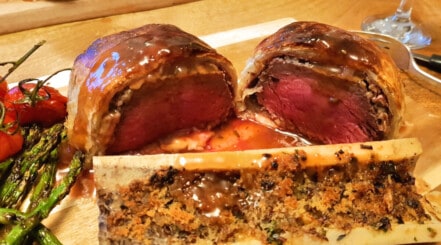
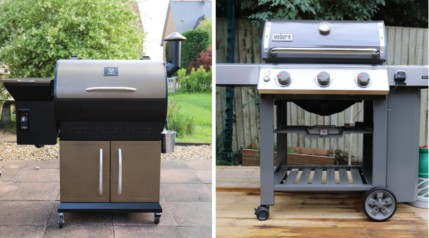
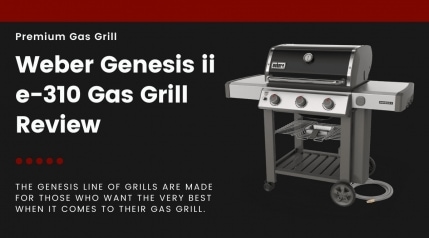
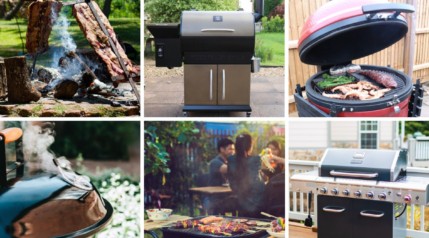
Emma, I like that you mentioned that the reason why most people often opt to get a propane gas grill is that it has a lower carbon emission rate than natural gas, plus it burns cleaner. My wife and I just had a pergola and outdoor kitchen installed in our backyard, and we’re planning to buy a grill, so we can host backyard BBQ for friends and family. Perhaps we should opt for a propane gas grill and find a propane gas delivery service in our city. Thanks, for this!
Actually, she said that natural gas is more environmentally friendly. I think you have it backwards.
It’s interesting that propane gas is easy-to-use and is portable. My family wants to do a cookout at the park this weekend and I need more propane gas for my grill. I’ll be sure to find some or consider getting some delivered since we’re always grilling.
I had confusion between propane and natural grills. But, after reading your detailed blog it cleared my all confusion.
Thank you!
I’m happy you found it useful, Jim.
OK…but why does the unit cost more to begin with? What manufacturing difference accounts for the price differential?
It’s typically a 10s of dollars difference, and this is to cover the extra cost of the superior quality quick disconnect fitting and far longer hose (typically 10 feet) that connects a natural gas grill to the mains, rather than the cheaper connector, and 1 to 2 foot hose that connects a propane grill to an LP tank.
So I bought a house, and the previous owner left me their grill, it’s slightly older, and it’s a dual model grill in which it can take either LP/Propane or natural gas. He had it hooked up to the house’s Natural Gas.
I’ve cooked a few times with the grill, and even with all 3 burners going on at high, I can’t get the temperature gauge to go over 200 degrees. I assumed the gauge was broken (older grill, wouldn’t be surprising). But I’ve cooked steaks and chicken in the grill, and while it does cook, it takes a LOT longer than I’m used to with my former propane grills. So there’s something wrong. Either the grill and burners are older, or the gas flow is not “normal” (how can I tell?), like the line is pinched or something else is going on with the gas, or maybe because the grill is rated for both LP and NG the burner holes are “medium” size, so too large for propane and too small for NG?
Hi, Paul. It does sound wrong to not be able to get over 200 degrees as that makes for a pretty useless grill! It may just be that it’s old and not working well anymore.
Have you tried removing the burners and giving them a good clean? Checked the hosing to make sure it isn’t pinched, or has a leak anywhere? (that would of course cause a pressure drop.) Does the grill have any adjustable vents that may be open, preventing the grill holding much heat?
I have both, the natural gas unit that I use when I’m home in the evenings after work for it’s convenience and the propane unit I take with me to the lake or the ocean. They both serve their own purpose but I do think natural gas makes the food taste better.